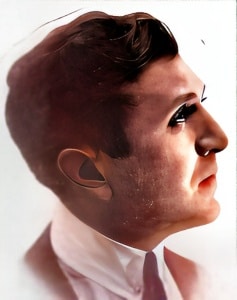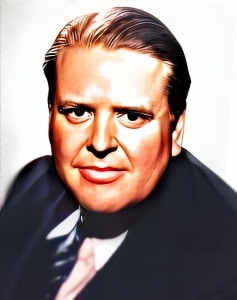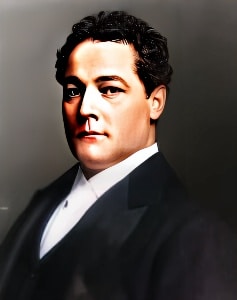 James A. Marcus (1867-1937) was an American actor who left an indelible mark on both the theatrical stage and the emerging world of silent films during the early years of American cinema.
James A. Marcus (1867-1937) was an American actor who left an indelible mark on both the theatrical stage and the emerging world of silent films during the early years of American cinema.
Born on January 15, 1867, in New York City, USA, Marcus embarked on a career in the entertainment industry that spanned several decades, showcasing his versatility and talent as a respected figure in the world of acting.
James A. Marcus began his journey into the performing arts on the theatrical stage. He performed in various theatrical productions, honing his acting skills and gaining recognition for his work. His stage career provided the essential foundation for his future success as an actor.
With the advent of the silent film era, many stage actors saw an opportunity to transition into the burgeoning film industry. James A. Marcus was among those who made the leap into silent films. His theatrical experience and acting prowess made him a valuable addition to early film productions.
In the silent film realm, James A. Marcus took on numerous roles, showcasing his ability to convey a wide range of emotions and characters through his expressive face and body language. His work varied from dramatic and serious roles to light-hearted and comedic characters, illustrating his versatility as an actor.
One of Marcus’s notable film roles was in the 1915 silent drama “The Clue,” directed by Chester Withey. In this film, he portrayed the character of John Graham, making a significant contribution to the film’s narrative. His performance in “The Clue” exemplified his ability to bring depth and authenticity to his characters on the silent screen.
What set James A. Marcus apart was his adaptability and versatility as an actor. He was equally adept at portraying both heroic and villainous characters, making him a sought-after talent in the silent film industry. His wide range of performances contributed to his success on both the stage and in silent films, further solidifying his status as a respected figure in the world of entertainment.
Although James A. Marcus may not be as widely recognized today as some of the leading stars of his time, his contributions to the early years of American cinema are an essential part of Hollywood’s history. His ability to seamlessly transition from the theatrical stage to silent films and excel in both mediums marked him as an influential figure in the entertainment industry during a transformative period in the world of film.
As the silent film era eventually gave way to the era of sound films, many actors faced challenges in adapting to the new medium. While the specifics of Marcus’s later career are less documented, his early work on both stage and screen remains a testament to the evolving nature of the entertainment industry during the early 20th century.
James A. Marcus passed away on September 15, 1937, leaving behind a legacy in the world of theater and silent film. His contributions to the arts, his versatility as an actor, and his ability to bring characters to life through his performances continue to be celebrated as an important part of cinematic and theatrical history.




